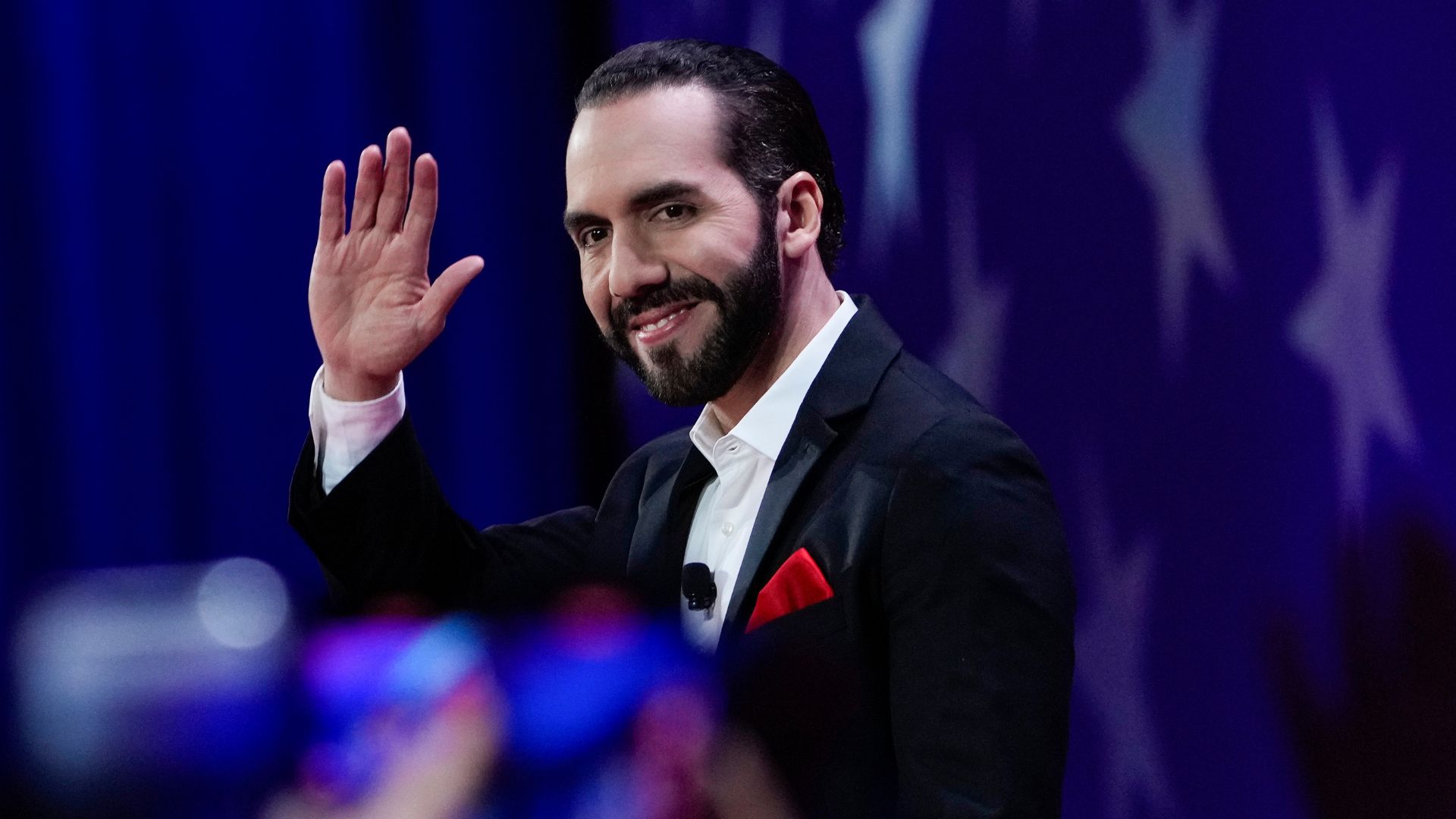
El Salvador’s President Nayib Bukele has expressed support for President Donald Trump’s call to rein in activist judges in the United States, following a recent legal ruling that has sparked significant controversy.
Bukele’s response, which has gained widespread attention, highlights his agreement with Trump’s stance on judicial overreach in the U.S.
The situation stemmed from a decision by U.S. District Judge James E. Boasberg, who ruled against the Trump administration’s plan to deport violent criminal aliens.
Elon Musk Called This Financial News ‘Terrifying’
In response to the ruling, Trump took to Truth Social to call for the impeachment of the judge, saying, “WE DON’T WANT VICIOUS, VIOLENT, AND DEMENTED CRIMINALS, MANY OF THEM DERANGED MURDERERS, IN OUR COUNTRY.”
“WE DON’T WANT VICIOUS, VIOLENT, AND DEMENTED CRIMINALS, MANY OF THEM DERANGED MURDERERS, IN OUR COUNTRY. MAKE AMERICA GREAT AGAIN!!!” pic.twitter.com/pmQHJmn7fW
— I Meme Therefore I Am (@ImMeme0) March 18, 2025
The ruling came after Judge Boasberg attempted to halt deportation flights of violent criminal aliens mid-air, which prompted Trump’s response.
American Made Patriotic Apparel – Save 15% with Promo Code MERICA
The decision, which was seen as a significant blow to the administration’s immigration policy, led to a broader discussion on the role of judges in shaping U.S. law, particularly when their decisions appear to directly conflict with the will of the American people.
President Bukele, known for his outspoken stance on various global political issues, weighed in on the debate.
Writing on the social media platform X, Bukele stated, “The U.S. is facing a judicial coup.”
The U.S. is facing a judicial coup.
— Nayib Bukele (@nayibbukele) March 19, 2025
His statement has since gone viral, amassing over 159 million views.
Many shared Bukele’s sentiments, agreeing that judicial overreach is a pressing issue that needs to be addressed.
In addition to his statement on X, Bukele expanded on his position during a discussion last month, where he explained that the system of checks and balances in a democratic government cannot function properly unless the judicial branch is also subject to checks.
The only way to restore rule of the people in America is to impeach judges. No one is above the law, including judges.
That is what it took to fix El Salvador. Same applies to America. https://t.co/HtPINo6ngU
— Elon Musk (@elonmusk) February 25, 2025
He emphasized that if corrupt judges are not impeached, they will form a “cartel” or “judicial dictatorship” that will block necessary reforms and perpetuate systemic corruption.
His comments suggest a belief that unchecked judicial power could undermine the ability of elected officials to enact the will of the people.
Bukele’s comments also gained attention after he responded to Elon Musk, who had previously voiced concerns about the unchecked power of activist judges.
The El Salvadoran president echoed Musk’s concerns, stating that without holding judges accountable, meaningful reforms in any country would be impossible.
If you don’t impeach the corrupt judges, you CANNOT fix the country.
They will form a cartel (a judicial dictatorship) and block all reforms, protecting the systemic corruption that put them in their seats. https://t.co/crNZDuj0Kf
— Nayib Bukele (@nayibbukele) February 26, 2025
The debate over judicial power in the U.S. has reached a boiling point, with Trump and others arguing that the judiciary is becoming increasingly unaccountable and actively working to thwart the policies of the elected executive branch.
Trump’s call for impeachment is framed as an effort to restore balance between the branches of government and ensure that the will of the people, as expressed through their votes, is upheld.
The issue of judicial overreach is not new, but recent high-profile rulings have brought the matter to the forefront of public discourse.
Critics of activist judges argue that the judiciary is overstepping its bounds by making decisions that should be left to the legislative or executive branches, particularly when those decisions seem to contradict the expressed will of the people.
President Bukele told America that El Salvador needed to get rid of their corrupt judges. pic.twitter.com/uTEmsV9tMa
— floridanow1 (@floridanow1) March 19, 2025
As the debate continues, President Bukele’s comments have added fuel to the fire, with many agreeing that the U.S. faces significant challenges in addressing judicial overreach and ensuring that the system of checks and balances remains intact.
Whether the calls for judicial accountability will lead to any meaningful change remains to be seen, but it is clear that the issue is resonating with leaders around the world, including those in El Salvador.
In the meantime, the battle over immigration policy and judicial authority in the U.S. is far from over, with both Trump and Bukele advocating for stronger actions to rein in what they see as an overactive and politically motivated judiciary.
As this issue continues to unfold, it will likely remain a focal point of debate in the U.S. and abroad.
The opinions expressed by contributors and/or content partners are their own and do not necessarily reflect the views of LifeZette. Contact us for guidelines on submitting your own commentary.






![Trump's Admin Guts Another ‘Rogue Government Agency with Zero Accountability’ [WATCH]](https://www.right2024.com/wp-content/uploads/2025/03/Trumps-Admin-Guts-Another-‘Rogue-Government-Agency-with-Zero-Accountability-350x250.jpg)
![‘We All Owe Him (Elon) a Huge Debt of Gratitude’ [WATCH]](https://www.right2024.com/wp-content/uploads/2025/03/‘We-All-Owe-Him-Elon-a-Huge-Debt-of-Gratitude-350x250.jpg)









